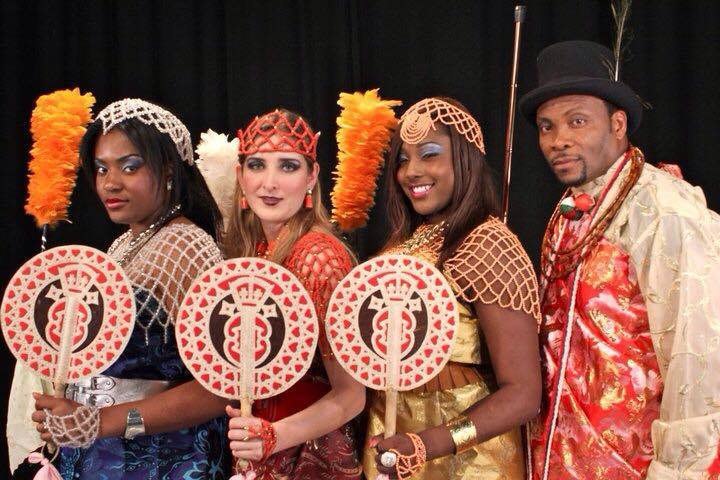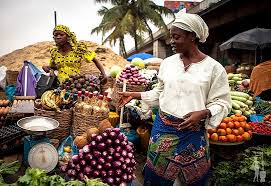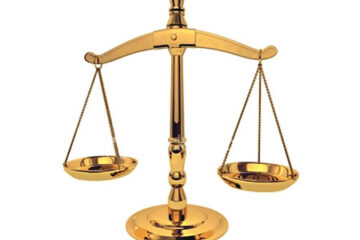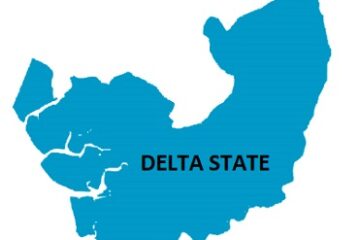Itsekiri as an ethnic nationality is known by all and sundry as one with one culture, one language and one King. That unambiguously means that what obtains in one community is what obtains in other communities within the Itsekiri nation probably with some insignificant differences.
One thing that has caused so much confusion among the Itsekiris today is the issue of paternity and maternity as a consideration for holding certain positions. Many erroneously believe that in all situations, the lineage a person belongs to must occupy the central stage when considering that person for positions like community head (Onare-aja), family head (Olori-ebi) or ancestral priest (Okpanran-ebura). The argument always advanced for this erroneous view is that it is forbidden, if not a taboo, for a person who belongs to a maternal lineage to offer sacrifice or pour libation to departed souls (ebura).
This vexatious view, which is not supported by any tradition, whether written or oral, has also been stretched to the issue of Chieftaincy titles belonging to families and communities. The only case, which the protagonists of this false doctrine always cite to buttress their position, is that of Chief Dore Numa who failed in his attempt to become the Olu of Warri during the interregnum because of his maternal lineage in the royal family being grandson of Princess Uwala. I beg to reserve my comment on this for now. But suffice it to say that there were more to the Chief Dore Numa issue than we were told. In fact, a school of thought has suggested that Eyeomasan (Dom Domingos) who became Ogiame Atuwatse in 1625 envisaged the emergence of a female Olu, hence he returned from Portugal with two silver crowns (male and female) in 1610/1611.
To set the records straight, there is no paternal and maternal dichotomy in Itsekiri culture as suggested by the saying, “bi ebura uli osa kpa one, were ebura uli ore kpa one!” Simply put, it means that as one is in one’s paternal family, so one is in one’s maternal family. The only exception is the Itsekiri throne which no female or person of maternal lineage can ascend. The following cases attest to this fact: (1). Princess Udorolusan (popularly known as Princess Iye) was at the helm of Itsekiri affairs for many years after the death of Olu Ikengbuwa (Akengbuwa) in 1848. (2). Atsibutsere Skinn, son of Princess Agbeje Ikengbuwa, presided over the selection and installation of Ogiame Ginuwa II in 1936 as head of the royal family. (3). Chief Gbenebitse, son of a daughter of Prince Omateye, presided over the selection and installation of Erejuwa II in 1951 as head of the royal family. (4). Pa Logo Egbele Okoro who maternally belonged to the royal family presided over the selection and installation of Ogiame Atuwatse II in 1987 as head of the family. (5). Dr. Duakpemi A. Ayu, who belongs to the royal family, led the ruling house in the selection and installation of Ogiame Ikenwoli in 2015 as head of Ejo royal family. Also, Rev. Dr. J.O. Ireyefoju who maternally belongs to the royal family presided over all the meetings of the larger royal family in connection with the demise and rites of passage of Atuwatse II as well as the coronation of Ogiame Ikenwoli in 2015. (6). Pa Ebido Diare who maternally belonged to the Ologbotsere/Uwangue family, placed the crown on the head of Ogiame Ginuwa II in 1936. He was also then the Onare-aja of Jakpa. (7). Pa Etsano Olo who maternally belonged to the Uwangue family was Onare-aja of Jakpa from 1965 to 1969. (8). Tsegbeyeri Awani who maternally belonged to the royal family was the custodian of Ogiame Erejuwa II at ‘Daniken’ in his capacity as head of the royal family in 1951. (9). According to Pa J.O.S. Ayomike, a frontline historian, Ologbotsere Eyinmisanren was the son of Osawereren, daughter of Ologbotsere Aguinode (Brochure and programme of events for the centenary commemoration of the British/Ebrohimi war of 1894. Revised edition published in 2007, page 32). Ten years after this publication, nobody has countered it! (10). The present Olori-ebi of Ugogo maru royal family of Warri Kingdom is Pa Daniel O. Tuoyibo Amorighoye from the Princess Uwala stock of the five children (Princess Uwala, Princess Iye, Prince Omateye, Prince Ejo and Princess Ejimogho) of Olu Erejuwa I and Olu Ikegbuwa (Akengbuwa) that make up the said Ugogo maru of the royal family. (11). It is also suggested but not confirmed that Ogbanranmi, the Iyatsere “Ute Eni” from Olu Inengbuwa (Akengbuwa) mother’s side who last held the title before the interregnum, belonged to a maternal lineage of Imaran, Ukutserun, Idimegin and Asoroku family of Ogheye. Similarly, of the four Iyatseres that we have had after the interregnum namely: Igokwe, Odeworitse Pessu, Brown Tenumah and Gabriel Mabiaku, only Igokwe can be said to be of a paternal lineage in the strict application of the term.
There are a good number of such instances and even strangers who held some sensitive Chieftaincy titles in Itsekiri in the past whose status in their places of origin were not known. Ugbo Ekete who hailed from Aboh and later left Ode-Itsekiri to found a place called Ugbo Olisan and finally settled at Ugborodo, held the title of Olisan (the crowner), the equivalent of Oliha in Benin. Similarly, Imi from Ode in Ikale area of present day Ondo State held the title of Iyatsere.
In addition, cases abound of persons of maternal lineages and females who led in different capacities in the past. For instance, in Usele, a town founded by Prince Oritsemone Ikengbuwa, two females have so far occupied the position of Onare-aja, the last being Princess Okpuma Mebulianghanje Kuku, mother of Chief (Dr.) Mrs. P.E.B. Uku. Similarly, in Deghele founded by Princess Udorolusan (Iye), Mama Bebeyi was at the helm of affairs for many years.
That a person of maternal lineage cannot offer sacrifice or pour libation to departed souls is the imagination of those who mooted the idea. Perhaps they can provide an answer to the big question: what happens in a community or family where the progenitor had only female children? A good example is Ekurede-Itsekiri where, we are told, Oforudu, the founder had no single male child but the ‘Uleje’ is there at the town hall for the annual or periodic ancestral ceremony.
Itsekiri, indeed, has a culture that is in line with civilization. Our culture is devoid of dehumanizing and discriminatory tendencies, although does not recognize gender equality. Each folk knows where the boundary begins and where it ends.




